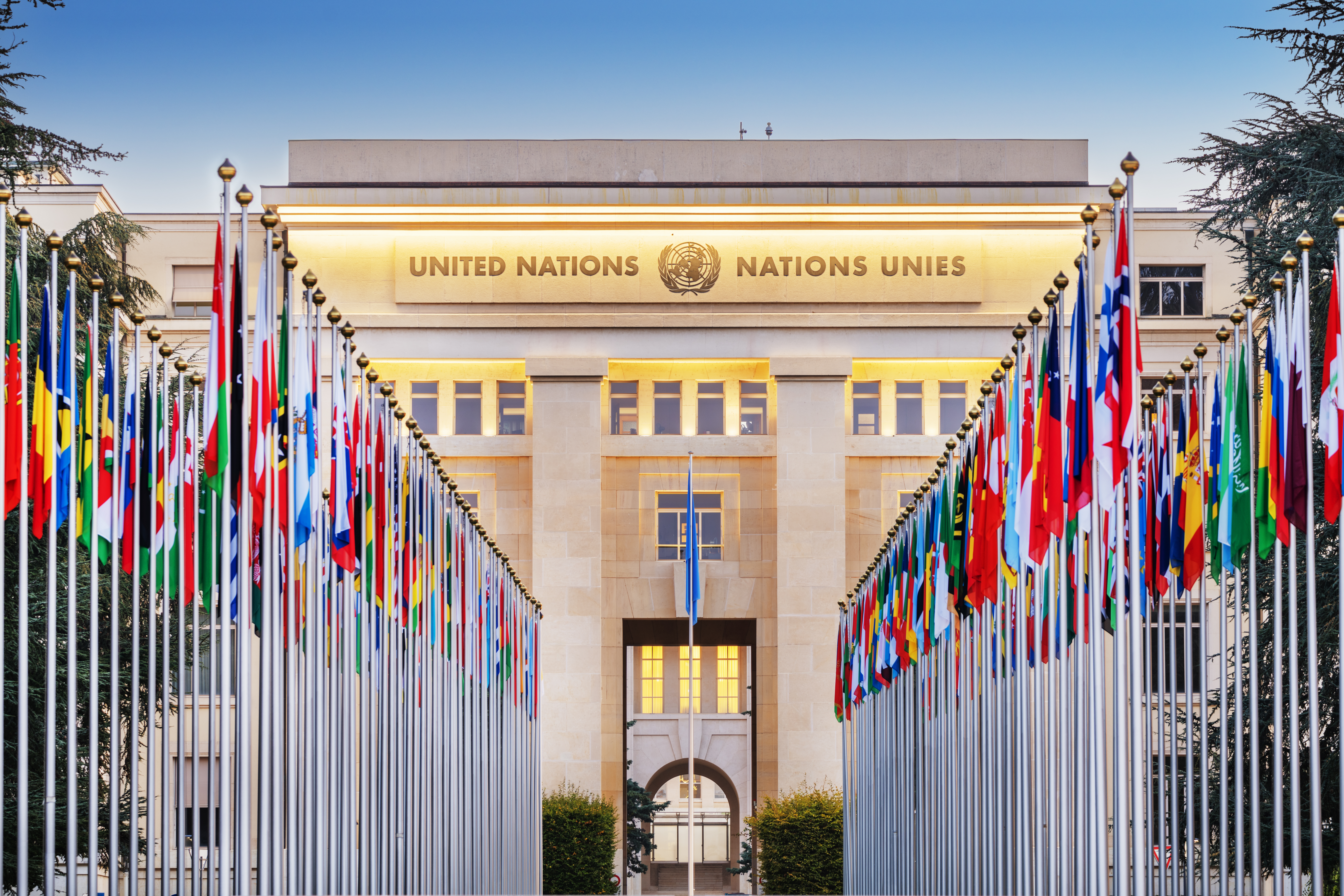
THREAD: economic alert consumer sentiment plummets...
LifeLine™ Media threads use our sophisticated algorithms to construct a thread around any topic you want, providing you with a detailed timeline, analysis, and related articles.
News Timeline


— US Loses ‘Perfect’ Credit Rating Amid Rising Debt Concerns The downgrade raises fears of higher borrowing costs and increased market volatility as investors seek safety in gold
— US Loses Perfect Credit Rating Amid Debt Concerns The downgrade raises fears of higher borrowing costs, market volatility, and slower economic growth amid ongoing political tensions and crises

— 23andMe to be acquired for $256 million amid financial struggles The deal aims to secure the company’s future amid market tensions and changing policies

— US Loses Perfect Credit Rating Amid Rising Debt Concerns Economists warn the downgrade could raise borrowing costs and slow economic growth, sparking debate over fiscal policies
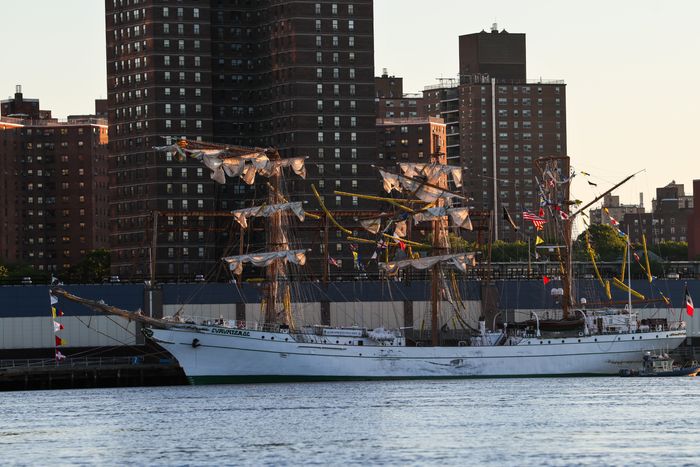
— US Credit Rating Downgrade Sparks Market Volatility The US lost its perfect credit rating amid rising debt concerns, likely increasing borrowing costs and slowing economic growth, while a Mexican Navy ship collision damaged the Brooklyn Bridge, causing deaths and safety fears

UN BLAMES AMERICA: Gloomy Global Growth Forecast Sparks Outrage
— The United Nations is blaming the U.S. for a slowdown in global growth, pointing to higher American tariffs and trade fights. The U.N. now expects worldwide growth to hit just 2.4% this year and 2.5% in 2025 — both lower than what they predicted before.
Shantanu Mukherjee from the U.N.’s Economic Analysis team says “uncertainty” is everywhere right now. He also blames shaky politics, rising costs, supply chain messes, and financial worries for making things worse.
The slowdown is especially tough on developing countries. Their expected growth rate dropped from 4.6% to 4.1% since January — a huge loss for places already battling poverty.
U.N. experts warn that if these trends continue, more than half of the world’s poorest people could face even harder times ahead.
SHOCKING ARSON Strike: UK Prime Minister’S Home Targeted Amid Chaos
— A man has been arrested after a fire broke out at UK Prime Minister Keir Starmer’s London home. Police say it was arson and are now running a full investigation into how this could happen.
This attack comes as Britain faces growing unrest. Starmer is under fire from his own Labour Party, with MP Rosie Duffield quitting and calling him out for hypocrisy and harsh policies. Other MPs have also left or rebelled over scandals and tough budget cuts.
The arson attempt raises serious questions about the Prime Minister’s safety and shows how unstable British politics has become. Police are still looking into what happened as the story unfolds.
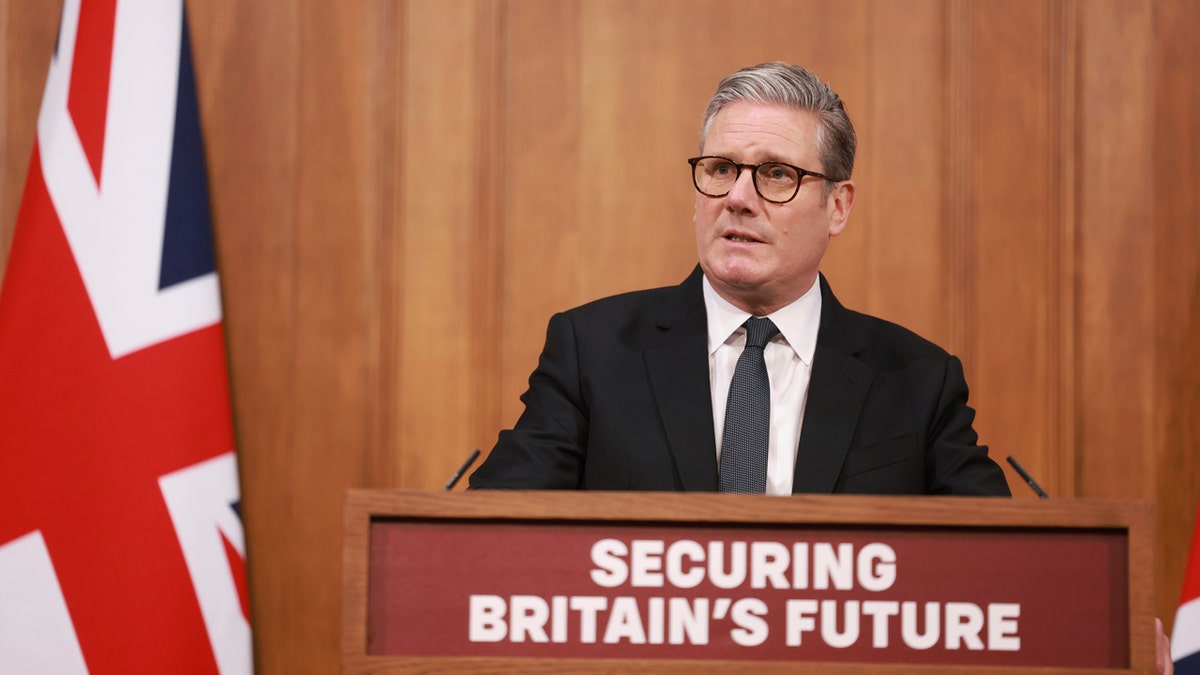
SHOCKING FIRE Rocks UK PM’S Home Amid Chaos and Party Revolt
— A fire broke out at UK Prime Minister Keir Starmer’s private London home, leading to a fast police response. Officials have not shared what caused the fire or how much damage was done.
This comes as Starmer faces heavy criticism and growing anger inside his own party. He is under fire for tough spending cuts and reports of taking pricey gifts.
Several Labour Members of Parliament have quit or turned against him, showing deep splits in his team.
The fire piles more trouble onto Starmer’s plate. Police are still investigating, but no new details have been released yet.

AMERICAN PRIDE Soars: LEO XIV Rises As Pope Amid Immigration Shakeup
— History was made on May 8, 2025, when Cardinal Robert Francis Prevost from Chicago became Pope Leo XIV. He is the first American to lead the Catholic Church. Cheers filled St. Peter’s Square as white smoke signaled his election. Many Catholics in the U.S. celebrated this proud moment.
On that same day, the U.S. government took strong action against illegal immigration. The crackdown sparked heated debate and a rise in crime reports across several cities. These events put even more attention on Pope Leo XIV’s historic win.
Americans are now thinking about how faith and national security connect during these changing times. Leaders around the world are watching closely to see what comes next.
No other big financial news broke that day, making these stories stand out for both investors and everyday Americans alike.

BORDER CHAOS and Economic Shock: America Faces Urgent Threats at Home and Abroad
— Border agents are stepping up the fight against illegal immigration. Northern officials recently arrested a foreign adversary, while federal agents in North Carolina broke up a kidnapping ring tied to illegal immigrants. The Senate is pushing a bill to end in-state tuition for undocumented students, showing leaders want tougher rules on who gets benefits.
Ford Motor is facing a $15 billion loss from tariffs put in place during the Trump years. Because of this, Ford has pulled its annual financial guidance, blaming trade uncertainty. At the same time, the Federal Reserve kept interest rates steady, making investors nervous about what comes next for the economy.
Overseas, Britain banned radical leftist Julius Malema from speaking at Cambridge University. Some call it censorship, but many support keeping far-left voices out of public events. King Charles III led VE Day ceremonies at Westminster Abbey as Britain looked back on unity during hard times.
Other big stories include gridlock over picking a new Pope in Rome and rising military tensions between India and Pakistan after missile launches. Former President Trump’s choice of Dr. Casey Means for Surgeon General is causing debate in Washington. Meanwhile, acquittals of Memphis police officers have sparked more protests on college campuses over Israel-Palestine issues.

BISIGNANO VICTORY: Senate Ignites Hope for Social Security Reform Amid Liberal Fury
— Frank Bisignano, a seasoned Wall Street leader, has been confirmed by the Senate to head the Social Security Administration. The vote was close — 53 in favor and 47 against.
Liberal lawmakers and activists are furious over his appointment. They worry he will push for big changes to Social Security. Conservatives, however, see this as a much-needed step toward fixing the program.
Bisignano’s new role could mean real change in how Social Security is run. Many on the right hope he will bring discipline and accountability to a system that desperately needs it.
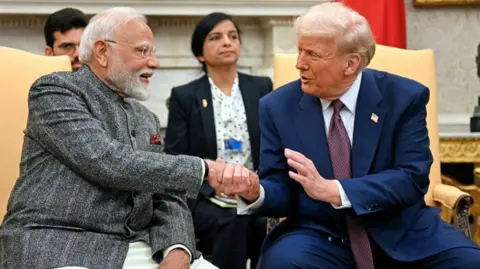
UK-INDIA TRADE Deal: A Game-Changer for Economic Growth
— The UK and India have reached a big step in their free trade deal, agreeing on 90% of the terms. This includes major tariff cuts on key UK exports like scotch whisky and cars. The agreement is set to greatly boost economic ties between the two countries.
RUSSIAN MINISTER BREAKS SANCTIONS: A Bold Violation
Former Russian minister Dmitry Ovsiannikov was found guilty of breaking UK sanctions by moving money into a British bank account. This is the first conviction under the Russia Sanctions Regulations in the UK. It shows how serious the UK is about enforcing its sanctions rules strictly.
UK NEEDS STRONGER EUROPEAN TRADE LINKS, Says Chancellor
Chancellor Rachel Reeves says improving trade with Europe is vital for post-Brexit Britain, especially with US tariff issues ongoing. Strengthening these ties could help ease some economic problems Britain faces due to global trade tensions. Her call highlights why strategic partnerships are needed in today’s changing world.

US TRADE Policies Cause GLOBAL Economic Jitters
— Recent U.S. tariffs have left Canadian small businesses facing economic challenges, leading to job cuts and price hikes. The Canadian Federation of Independent Business reports nine percent of owners have issued layoff notices due to these tariffs. Businesses are raising prices by an average of 3.7 percent this month as they struggle with rising costs and decreased consumer spending.
In Alberta, business leaders feel cautiously optimistic after avoiding new U.S.-imposed tariffs that threatened the energy sector. Adam Legge from the Business Council of Alberta feels relieved but remains wary about future trade developments under current policies.
President Trump’s tariff strategy aims to equalize import taxes with those imposed by other nations, sparking debate over its economic impact on sectors like agriculture and manufacturing. Meanwhile, Japan’s Prime Minister Shigeru Ishiba expressed disappointment over Japan’s exclusion from tariff exemptions and plans support for affected industries domestically.
These developments highlight growing concerns about global economic instability driven by U.S. trade policies, particularly affecting small businesses worldwide as they navigate uncertain financial landscapes.

GOLD PRICES Surge: Brace for Economic Shockwaves from New US Tariffs
— Gold prices have surged as investors brace for the U.S. “Liberation Day” tariff announcement. This has led to cautious trading, with businesses gearing up for possible economic shifts.
The jump in gold signals a move towards safety amid uncertainty over trade relations and policies under the current administration. Many companies are rethinking strategies due to potential tariff impacts.
Analysts worry about major economic fallout, especially for export-reliant industries. The business community is closely watching international reactions and possible retaliatory measures that could escalate global trade tensions.

ISRAEL’S Bold Move: 25% of Gaza to be Occupied Amid Rising Conflict
— A senior Israeli official has announced plans to occupy 25% of Gaza in the next two to three weeks. This bold move comes amid rising tensions and ongoing conflict in the region, sparking significant concerns.
The humanitarian situation in Gaza is worsening as the conflict heats up. The international community is watching closely, urging restraint and pushing for negotiation efforts.
Various international bodies are calling for calm as they observe the unfolding situation. Their focus remains on finding a peaceful solution to prevent further escalation.

STOCK MARKET Chaos: US Faces Economic Fears as Tariffs Loom
— U.S. stocks took a nosedive today as President Donald Trump’s “Liberation Day” approaches, bringing potential tariffs on Canadian steel and aluminum imports. Analysts warn these tariffs could trigger a market downturn and increase recession risks. Wolfe Research has already revised U.S. growth estimates for 2025 down to 1.6%.
Retail giant Kohl’s experienced its worst trading day since 1992, with stocks tumbling by 26% after issuing disappointing guidance for the year. Investor anxiety is also heightened by an upcoming House vote on a stopgap funding bill, adding to market volatility.
The Dow Jones Industrial Average has fallen 8.3% from its peak, raising concerns about the tech sector’s performance compared to the S&P 500. Investors are bracing for further shifts as policy decisions unfold in the coming days amid fears of reduced earnings across sectors due to new tariffs and declining consumer confidence.

STUDENT’S Disappearance Sparks Travel Safety Alert
— The disappearance of Sudiksha Konanki, a University of Pittsburgh student, has raised concerns about travel safety during spring break. Konanki vanished from the Riu Republica Resort in Punta Cana, Dominican Republic, on March 6. Her case highlights the need for vigilance when traveling abroad.
Bobby McDonald, a former Secret Service agent with over two decades of experience, shared essential safety tips for travelers. He emphasized staying within familiar areas and resort properties to avoid potential dangers. “Once you get off the property,” McDonald warned, "it’s very quickly you can find yourself in an area that you don’t want to be.
McDonald also stressed the importance of traveling in groups and not separating from companions. This advice is crucial for students planning trips abroad during spring break or study programs. Staying together can significantly reduce risks and enhance personal safety while exploring new destinations.
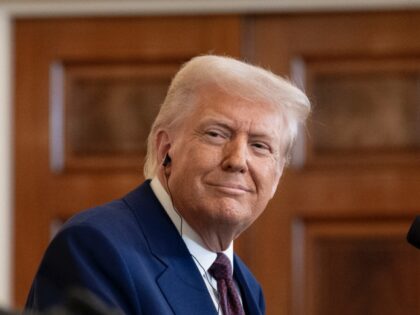
TRUMP’S GOLD Card Plan: Economic Boost or Risky Gamble?
— During a chat with Laura Ingraham, former President Donald Trump tackled worries about his gold card plan. He assured that any unsavory individuals would be screened and removed if needed. Trump stressed that those found unfit would get refunds and be sent out of the country.
Trump pointed out the economic perks of the plan, noting that people who can pay the $5 million fee are likely to create jobs. He believes these immigrants will boost the economy by generating jobs and encouraging business growth.
Trump also mentioned that companies might buy these gold cards to hire top graduates from America’s best schools. This strategy aims to attract skilled professionals who can drive innovation and competitiveness in various fields.

CANADA’S Carney Rallies European Allies Amid US Turmoil
— Canadian Prime Minister Mark Carney arrived in Paris to meet French President Emmanuel Macron. He’s working to strengthen ties as tensions rise with the Trump administration. This is Carney’s first official foreign trip since taking office on March 14. His schedule also includes meetings in London with U.K. Prime Minister Keir Starmer and King Charles III, highlighting Canada’s historical links to Europe.
During his swearing-in, Carney stressed Canada’s unique identity separate from the United States, dismissing any idea of joining the U.S. This follows President Trump’s tariffs on Canadian steel and aluminum and remarks about Canada as a potential 51st state. These actions have sparked frustration in Canada, leading to calls for boycotts of American goods.
A senior Canadian official noted that Carney’s European visit aims to bolster partnerships with London and Paris amid current U.S. challenges. The trip includes a stop at Notre-Dame Cathedral before talks at the Palais Élysée, though Macron may avoid a joint press conference to sidestep conflict with Trump by not openly siding with Canada.
Before returning home, Carney plans to visit Canada’s Arctic region to emphasize national security and sovereignty there. He is expected to call for a federal election soon after his return, ahead of Parliament resuming sessions in Ottawa.
UK’S MULTIPLE WOES: Arrests, Economic Struggles, and Diplomatic Drama
— A cargo ship captain in the North Sea has been arrested by UK authorities for suspected manslaughter after a collision. This incident highlights rising safety concerns in maritime operations. The crash had serious consequences, leading to calls for stricter regulations to prevent future tragedies.
The UK economy unexpectedly shrank in January, surprising analysts and challenging the Treasury chief. This downturn complicates financial strategies and could affect future policies. The unexpected shrinkage puts pressure on government officials to stabilize the economy quickly.
Environmental issues are also pressing as the UK government vows to clean up Lake Windermere after sewage pollution reports. The popular tourist spot’s beauty is at risk, prompting immediate action to restore its condition. Preserving the environment remains a priority amid these challenges.
Diplomatic tensions with Russia have escalated as two British diplomats were expelled over espionage claims from Moscow’s embassy. This move underscores strained relations between the nations and raises questions about future diplomatic engagements, adding complexity to UK’s international standing.
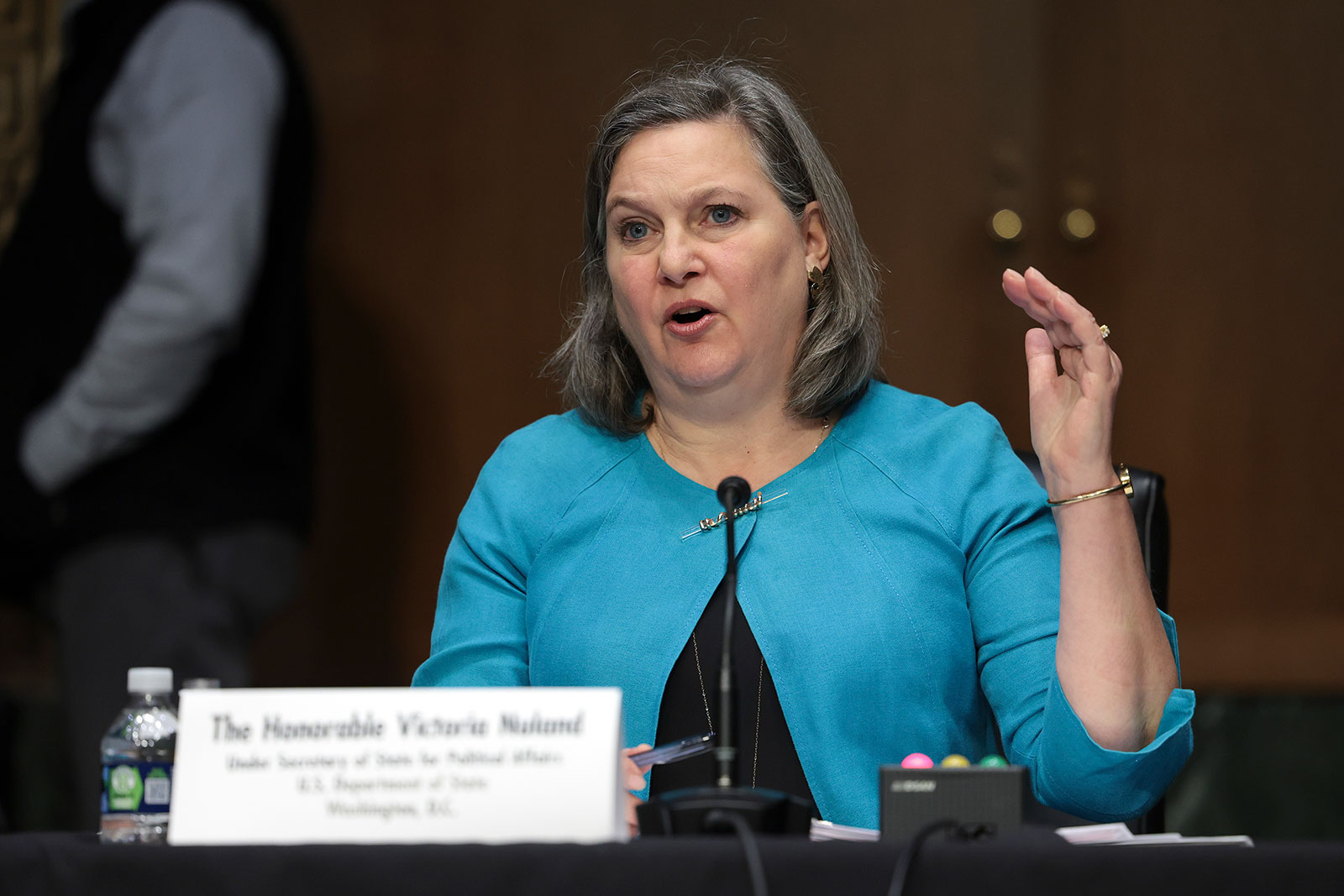
US RESTARTS Military AID to Ukraine: A Bold Move Amid Ceasefire Talks
— The UNITED STATES has agreed to restart military aid and intelligence sharing with Ukraine. This decision comes as Kyiv considers a U.S.-proposed 30-day ceasefire with Russia. The announcement marks a pivotal moment in U.S. support for Ukraine amid ongoing conflict.
A joint statement from U.S. and Ukrainian officials confirmed the resumption of security support. The proposed ceasefire aims to reduce hostilities and open doors for further negotiations between the involved parties, signaling a strategic shift in U.S. foreign policy toward stabilizing Ukraine through diplomacy.
This announcement arrives during heightened tensions between Ukraine and Russia, where continued hostilities threaten regional stability. Since the conflict began, the U.S.’s role has been crucial in providing both military and humanitarian assistance to Ukraine, underscoring its commitment to supporting allies against aggression.

US RESUMES MILITARY AID to Ukraine: A Bold Move Amid Ceasefire Talks
— The Trump administration has announced the immediate resumption of military aid to Ukraine. This decision aligns with Ukraine’s openness to a 30-day ceasefire, signaling a potential shift in the ongoing conflict. Delegations from both sides engaged in discussions for several hours, with more talks planned.
President Donald Trump is set to speak with Russian President Vladimir Putin about a possible ceasefire. Ukrainian President Volodymyr Zelensky has been invited back to the White House for further discussions. The Russian Foreign Ministry expressed willingness for continued dialogue with U.S. representatives, sparking hope for a peaceful resolution that respects Ukraine’s sovereignty.
Safety concerns have escalated following a tragic midair collision involving an Army helicopter and an American Airlines jet near Ronald Reagan Washington National Airport in January 2025. All 67 individuals on board both aircraft perished, prompting NTSB investigator Jennifer Homendy to urge the FAA to implement urgent safety measures immediately.
On the economic front, Asian markets are experiencing significant declines amid global sell-off trends impacting investor confidence worldwide. Japan, South Korea, and Taiwan saw market drops of about 2% as part of this broader financial downturn following the S&P 500’s worst day of the year on March 11th.

Lithuania’s BOLD Move: QUITS Cluster Bomb BAN Amid Rising Threats
— Lithuania has pulled out of an international treaty banning cluster bombs, citing security threats from Russia. This decision has sparked criticism from human rights groups. Lithuania also plans to exit a treaty banning anti-personnel land mines.
Human Rights Watch and Amnesty International have slammed Lithuania’s move as “disastrous.” They warn it could put civilian lives at risk in the region. Despite the backlash, Lithuania stands firm on its stance due to regional security concerns.
This decision marks a big shift for Lithuania, a former Soviet republic. The country is focusing on its national defense amid rising tensions with Russia. Critics argue this could lead to more militarization in Eastern Europe.

ZELENSKYY’S London Trip: A Bold Stand Amid Trump Drama
— Ukrainian President Volodymyr Zelenskyy received a warm welcome from British Prime Minister Keir Starmer at 10 Downing Street in London. This meeting followed a tense encounter with former President Donald Trump in Washington, D.C. Despite reporters’ questions about the spat, Zelenskyy remained silent on the matter.
The visit to London came after a public disagreement with Trump and Vice President JD Vance during a televised Oval Office meeting. Britain has agreed to provide Ukraine with a $2.84 billion loan for military assets, according to reports from the Associated Press.
Prime Minister Starmer expressed strong support for Ukraine upon greeting Zelenskyy, emphasizing Britain’s commitment to standing by Ukraine for as long as necessary. He highlighted the importance of achieving lasting peace based on sovereignty and security for Ukraine and Europe.
Starmer’s remarks underscored Britain’s unwavering determination to support Ukraine amidst ongoing tensions with Russia. The meeting aimed to reinforce diplomatic ties and discuss further cooperation between the two nations in pursuit of peace and stability in Europe.
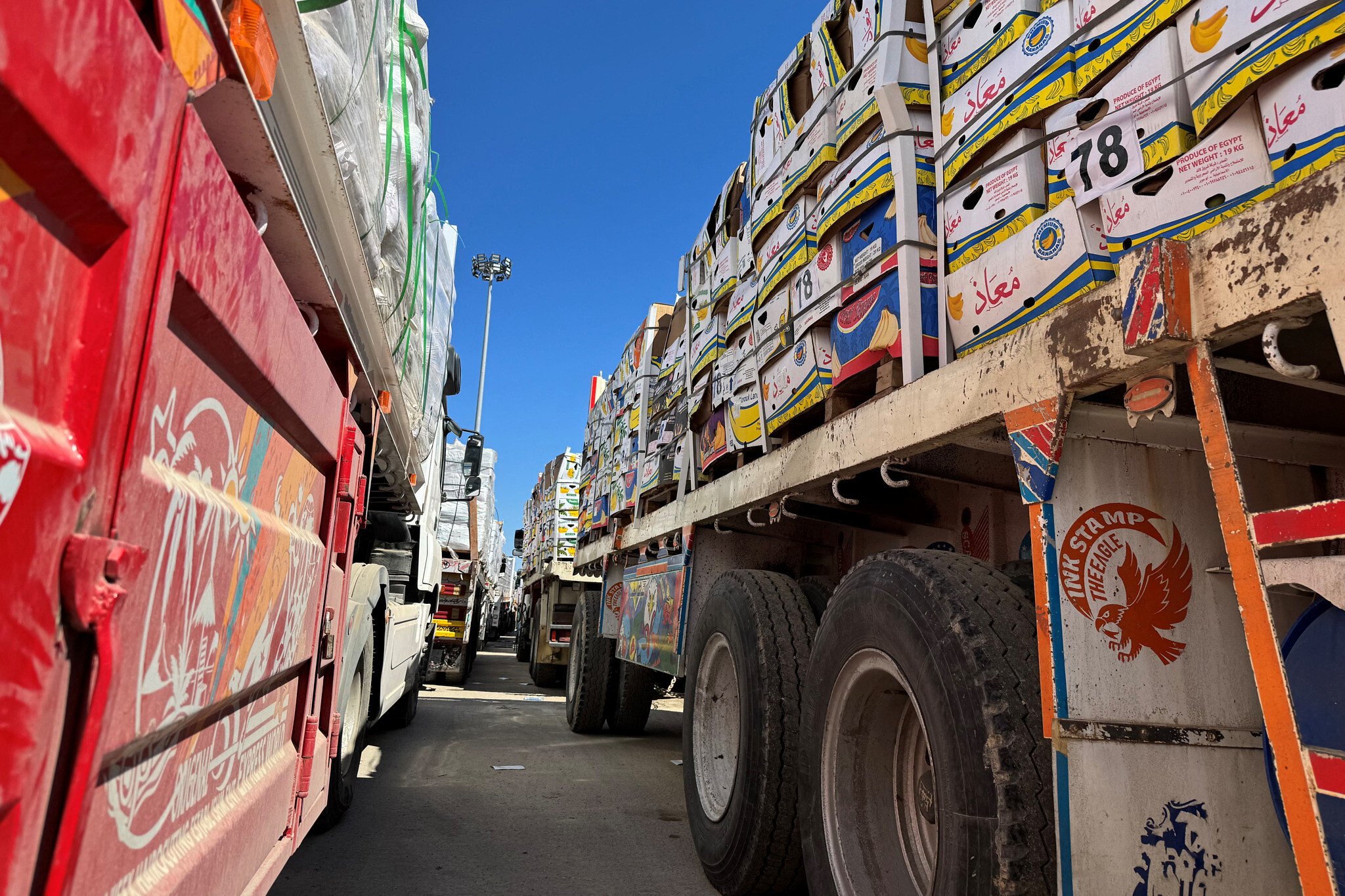
ISRAEL’S Bold Move: Aid to Gaza Halted Amid Ceasefire Clash
— Israel has stopped all humanitarian aid to Gaza, citing Hamas’s refusal to extend a U.S.-backed ceasefire agreement. Prime Minister Netanyahu announced the halt after the ceasefire deal expired. This decision comes during Ramadan and Passover, highlighting the religious significance of this period.
Netanyahu warned of “additional consequences” if Hamas continues rejecting peace talks. Hamas condemned Israel’s action as “cheap blackmail” and a “war crime.” They urged international mediators to pressure Israel into reversing its decision, as Gaza faces dire humanitarian conditions after 17 months of conflict.
The ongoing war in Gaza has resulted in over 45,000 deaths and severe infrastructure damage. Most residents depend on humanitarian aid for survival, worsening their plight with this new development. Additionally, there are still 59 hostages held by various groups within Gaza.
On the same day, Ukrainian President Zelenskyy attended a summit in London amid tensions with U.S. President Trump. This interaction raises concerns about U.S.-Ukraine relations and broader global tensions in March 2025, reflecting critical moments in both conflicts involving Israel-Palestine and Ukraine-Russia dynamics.

GOLD Prices PLUMMET Amid Trade WAR Jitters
— Gold prices took a big hit on Tuesday as traders cashed in profits with US Treasury bond yields falling. The XAU/USD pair saw a noticeable drop during the North American session. President Trump’s tariff threats against Mexico and Canada added to market uncertainty, affecting investor choices.
The decline in gold prices marks a change from the previous session’s record highs, driven by fears about Trump’s trade policies. Investors are reacting to possible instability in global markets, leading them to take profits.
This market shift highlights ongoing worries about economic stability and trade relations under the current administration. As traders adjust their positions, gold’s recent rally seems to be losing momentum amid these geopolitical tensions.

INNOVATIVE BUSINESS Ideas Face Economic Hurdles In Today’S Market
— The current market offers many opportunities for new business ideas. AI-powered financial coaching apps are gaining popularity, especially among women entrepreneurs. There’s also a growing demand for senior care services due to an aging population. Eco-friendly products, second-hand fashion, and zero-waste packaging are on the rise as consumers focus on sustainability.
Labour’s proposed tax hikes on businesses could threaten low-paid jobs in the UK. Employers face financial pressure from rising business rates and national insurance costs. These changes may cost businesses about £5 billion, potentially impacting low-income workers significantly.
In the U.S., stock markets saw a sharp decline with the Dow dropping nearly 750 points amid tariff concerns. Reports suggest U.S. business activity is nearing a stall with growth at a 17-month low. Businesses express widespread worries over federal policies affecting their operations and future optimism.

TRAGIC MALL Roof Collapse in Peru: SIX Lives Lost Amid Chaos
— The roof of the Real Plaza Trujillo shopping mall in Peru collapsed on Friday night, killing six and injuring 78. Many shoppers were present when the heavy iron roof gave way due to rain and humidity. Local fire chief Luis Roncal confirmed ongoing search operations, but no additional survivors have been found.
Mayor Mario Reyna ordered the mall’s immediate closure for safety reasons and announced inspections for other malls in Trujillo. Rescue crews worked throughout Saturday to find any remaining victims under the rubble. CCTV footage captured the collapse, showing chaos as the roof fell.
CHOLERA OUTBREAK DEVASTATES Sudan: 83 Lives LOST
A cholera outbreak has hit White Nile State in Sudan, taking at least 83 lives over three days and affecting over 1,300 people with severe symptoms. Contaminated drinking water worsened the crisis after a paramilitary attack shut down a local water treatment plant. The Ministry of Health is running a vaccination campaign targeting residents aged one and older in Kosti and Rabak cities to stop further spread.

TRAGIC Stampede in New Delhi: 18 Lives LOST Amid Chaos
— A TRAGIC stampede at a New Delhi railway station took the lives of at least 18 people. Thousands of Hindu pilgrims were heading to a major religious festival, leading to overcrowding and chaos. Witnesses described panic as people tried to board packed trains, resulting in the disaster.
Local authorities are investigating what happened and reviewing safety measures at the station during peak travel times. The surge in foot traffic overwhelmed existing protocols, showing possible gaps in crowd management.
This heartbreaking event highlights the need for better infrastructure and planning during large religious gatherings. Authorities must focus on safety to stop future tragedies as India’s population and travel demands grow.
For more details on this developing story, check Asia News sources for full coverage and updates on this unfortunate event.
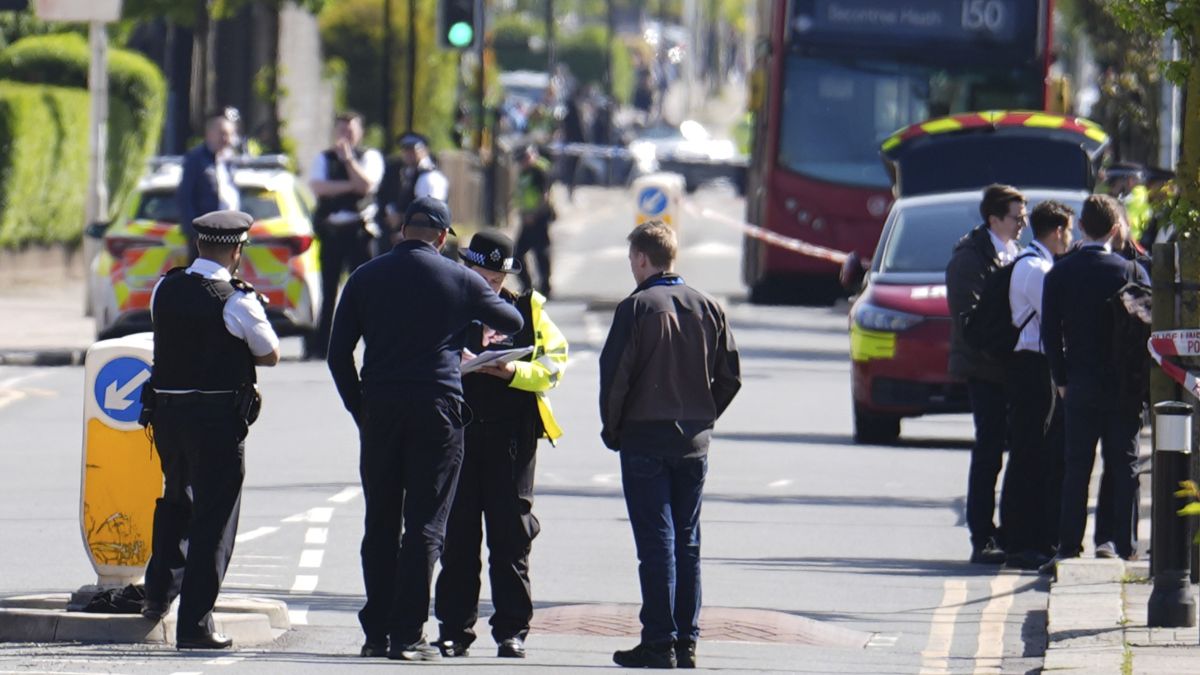)
UK CHAOS: Knife ATTACK, Economic Shock, and Storm Havoc
— UK police have arrested a suspect after a knife attack in South London injured five people. The investigation continues, but no details about the suspect or motive have been released. This incident raises ongoing concerns about public safety and crime in urban areas.
The Bank of England has cut interest rates to 4.50% while slashing its growth forecast amid economic uncertainty. This move aims to boost economic activity but raises questions about long-term financial stability as the UK faces challenging conditions.
A major storm has wreaked havoc across Ireland and Scotland, with hurricane-force winds downing power lines and grounding flights. Authorities are on high alert as regions face widespread chaos from severe weather conditions. The UK’s tallest tree was destroyed in the storm, sparking discussions on environmental conservation efforts.
TV chef Gino D’Acampo denies allegations of inappropriate behavior and plans legal action to defend his reputation amid media scrutiny. Meanwhile, the UN reports over 13,000 children killed in Gaza due to conflict-related violence — highlighting a dire humanitarian crisis needing global attention. In other news, the Church of England seeks public input for naming its next Archbishop to increase engagement in church leadership matters.

TRUMP’S Bold Trade WAR: New Tariffs Spark Economic Jitters
— President Donald Trump has announced a 25% tariff on goods from Canada and Mexico, and a 10% tariff on Chinese products. This bold move is expected to provoke retaliation, raising fears of a broader trade war. Republicans largely support the decision, but industry groups and Democrats warn of possible price hikes that could worsen inflation.
The tariffs are likely to affect multiple sectors, sparking discussions about inflationary pressures and reduced consumer spending. Economists worry about the impact on market stability and growth. The political landscape is divided, with some lawmakers backing the tariffs as protection for American industries while others worry about international relations and domestic prices.
Analysts caution that retaliatory measures could escalate tensions further, leading to an unstable economic environment if not managed carefully. This development highlights ongoing international trade tensions with significant implications for America’s future economic stability. As this situation unfolds, it remains crucial to monitor its effects on both domestic markets and global economic relations.

SOUTHERN SNOWSTORM Chaos: Communities Unite Amid Record-Breaking Blizzard
— A massive snowstorm has hit the southern United States, causing chaos in areas not used to harsh winter weather. New Orleans, Florida, and the Carolinas have seen record snowfall, leading to major travel issues. Local authorities are working hard to clear roads and help those affected by this unusual event.
Sadly, at least four deaths are linked to the storm due to accidents and stranded vehicles on highways. Emergency services are on high alert as they respond to many calls for help. The storm highlights the need for readiness in facing extreme weather conditions.
Despite challenges, communities have shown resilience during this crisis. Heartwarming stories of neighbors helping each other have emerged, including a playful snowball fight with nuns and a priest in Louisiana. These moments of unity offer comfort amid the storm’s adversity.
Meteorologists warn that more snow or rain may continue affecting some areas. This rare event raises concerns about unpredictable weather patterns as experts urge preparation for future extreme events.

TRUMP DEMANDS Newsom’s Resignation Amid Wildfire Chaos
— Former President Donald Trump has called for California Governor Gavin Newsom to resign amid the devastating wildfires in Los Angeles. The fires have claimed five lives, destroyed over 1,000 structures, and forced 150,000 residents to evacuate. Trump criticized Newsom’s management of the crisis in a social media post, suggesting accountability is necessary.
Governor Newsom fired back at Trump, accusing him of politicizing the tragedy. His administration dismissed Trump’s claims as “pure fiction” and emphasized focusing on relief efforts instead of political gamesmanship. Newsom’s office stressed that addressing immediate needs should take precedence over political disputes during such emergencies.
This clash underscores the ongoing tensions between Trump and Democratic leaders as both parties gear up for the next presidential election cycle. The situation reflects broader national debates on environmental policy and crisis management strategies.

BANGLADESH CHAOS: Prime Minister Resigns Amid Intense Protests
— Bangladesh’s Prime Minister Sheikh Hasina has resigned and fled the country amid violent protests. Demonstrators stormed her official residence, challenging her 15-year rule. Her departure adds to the nation’s instability, already plagued by high unemployment and corruption.
Security forces have increased their presence across Dhaka, where the main airport suspended operations for safety reasons. Reports suggest Hasina escaped in a military helicopter with her sister as chaos escalated.
Military chief Gen. Waker-uz-Zaman promises to restore order and is negotiating with opposition leaders to form an interim government. This move could significantly change Bangladesh’s political landscape.
While some celebrated in the streets, others turned violent, attacking government buildings and setting fires. The unrest highlights widespread dissatisfaction and may indicate a shift in regional power dynamics.

ISRAEL-HAMAS Ceasefire: Hopeful Breakthrough Amid Chaos
— U.S. and Arab mediators have made significant progress toward a ceasefire in the Israel-Hamas conflict. Officials report that negotiations are closer than ever to an agreement, though challenges remain. The coming days are critical for ending over 15 months of fighting in the Middle East.
A U.S. official involved in the talks expressed optimism but warned that the deal could still collapse due to unresolved issues. Previous attempts at brokering peace have stalled, leaving uncertainty about when a potential agreement might be reached.
Mediators from Qatar and U.S. envoy Steve Witkoff have been key players in pushing both sides toward a resolution. Witkoff has been actively engaging with Israeli negotiators, while Qatari mediators focus on Hamas leaders.
A draft deal is now on the table, awaiting approval from Israeli and Hamas leaders within the next 24 hours. The outcome of these discussions will be pivotal for regional stability and future peace efforts moving forward.
:max_bytes(150000):strip_icc():focal(1038x596:1040x598)/ethiopia-road-accident-tout-123024-7984382ecc3949a18cbf334289696043.jpg)
TRAGIC PLUNGE: Truck Plummets Into Ethiopian River, 66 Lives Lost
— A tragic accident in southern Ethiopia claimed the lives of at least 66 people when a truck plunged into a river. The incident happened on January 4, 2025, involving market traders heading to a local market.
Rescue teams rushed to recover bodies and help survivors amid chaotic scenes described by eyewitnesses. This accident is one of the deadliest in recent history for the region, raising concerns about road safety.
Ethiopia struggles with road safety and infrastructure challenges, prompting government promises for thorough investigations and preventive actions. Overloaded vehicles are a major concern as authorities continue their probe.

BRITISH AUTHORITIES on Alert: Rising Unrest Sparks Fears
— Prime Minister Keir Starmer urges vigilance as anti-immigrant violence rises in the UK. Despite efforts to curb far-right protests, unrest looms large. The government faces pressure to find effective solutions to maintain order and peace.
The recent spike in violence raises concerns about national stability. Authorities brace for potential disruptions as tensions simmer across the country, highlighting challenges for British leadership in tackling social unrest.
Meanwhile, severe weather has caused flooding and travel chaos in the UK. These events add to holiday season troubles, impacting many citizens and travelers alike.
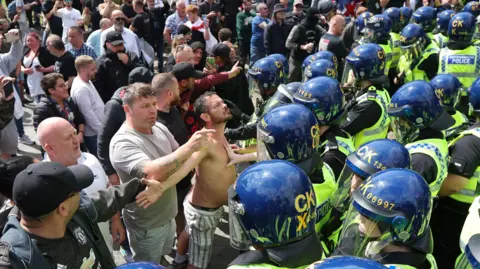
BRITISH AUTHORITIES Brace for Violence Amid Unrest
— British authorities are on high alert as anti-immigrant violence rises. Prime Minister Keir Starmer calls for vigilance and unity to manage the situation.
The unrest comes from far-right demonstrations, raising concerns about public safety and social harmony. Authorities have increased police presence in affected areas to prevent more incidents.
Prime Minister Starmer urges communities to work together to keep peace amid growing tensions. The government is focused on ensuring stability and protecting citizens during this challenging time.

ISRAELI RAID on Gaza Hospital Sparks Outrage Amid Hamas Conflict
— Israeli troops stormed Kamal Adwan Hospital in northern Gaza, causing fires and forcing evacuations, according to the territory’s health ministry. The hospital has been targeted multiple times during Israel’s offensive against Hamas in nearby neighborhoods. A recent strike reportedly killed five medical staff members.
Israel’s military stated operations aimed at Hamas infrastructure near the hospital but did not provide evidence of militants operating inside. Hospital officials denied such claims. Troops allegedly forced medical personnel and patients to strip outdoors, with some taken to unknown locations while others were moved to another hospital incapacitated by a previous raid.
The Health Ministry reported fires set by Israeli forces in various parts of Kamal Adwan, including critical areas like the lab and surgery department. Out of 75 patients and 180 staff initially present, only 25 patients and 60 health workers remain after the raid.
An audio message from a staff member described dire conditions with evacuated patients unhooked from oxygen, warning that lives are at risk without immediate intervention. The Associated Press could not independently verify these accounts due to restricted access to the site.

BETHLEHEM’S Christmas: A Somber Night Amid WAR’S Shadow
— Bethlehem experienced a quiet Christmas Eve due to the ongoing conflict in Gaza. The usual festive atmosphere was missing, with Manger Square lacking its traditional decorations and foreign tourists. Palestinian scouts marched silently, holding posters calling for peace in Gaza.
Security forces set up barriers near the Church of the Nativity, believed to be Jesus’s birthplace. A young boy tried selling balloons but found no customers amid the somber mood. The absence of festivities hit Bethlehem’s economy hard, as it relies heavily on tourism during Christmas.
Tourism once made up 70% of Bethlehem’s income, mostly from the Christmas season. Visitor numbers have dropped drastically from about 2 million in 2019 to under 100,000 in 2024. Jiries Qumsiyeh from the Palestinian Tourism Ministry pointed out this sharp decline as a major economic worry for the town.

CEO MURDER Sparks Fear: Corporate America on High Alert
— The shocking murder of UnitedHealthcare CEO Brian Thompson has left corporate America in fear. The gunman, still unidentified, likely fled New York City by bus shortly after the ambush. Police are investigating potential motives, including whether the shooter was a disgruntled employee or client.
Chief of Detectives Joseph Kenny stated that investigators are working tirelessly to track down the suspect. Video evidence shows the gunman fleeing on a bicycle into Central Park before taking a taxi to a bus terminal. This terminal offers routes to several major cities, complicating efforts to pinpoint his location.
The bold nature of this crime has raised concerns about safety among top executives nationwide. As police continue their search, corporate leaders are urged to review security measures and stay vigilant in these uncertain times.
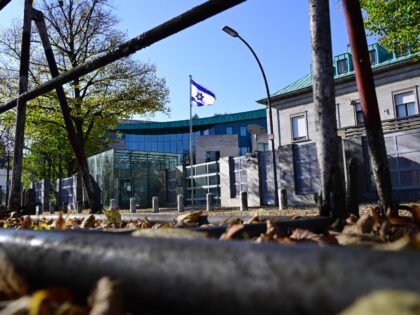
GERMANY FOILS Isis Plot: Arrest Sparks Security Alert
— German authorities have arrested a Libyan man suspected of planning an attack on the Israeli embassy in Berlin. The arrest happened in the Bernau suburb, stopping a potential terror act. The suspect intended to flee to Sankt Augustin and eventually leave Germany after carrying out the attack.
Israel’s ambassador to Germany, Ron Prosor, praised German authorities for keeping the embassy safe. He emphasized that “Muslim anti-Semitism” fuels global terrorism and endangers embassy staff. Local Interior Minister Herbert Reul warned those threatening Jewish life in Germany: "We are on your trail!
This arrest follows a recent shooting by an 18-year-old Austrian citizen of Bosnian descent at the Israeli consulate in Munich. The attack also targeted a nearby museum dedicated to National Socialism documentation. These events highlight ongoing threats against Jewish institutions in Europe.
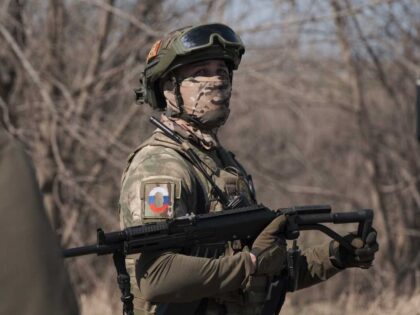
RUSSIA’S Military Losses Soar Amid Ukraine Conflict
— Britain’s Ministry of Defence reports a sharp rise in Russian military casualties, averaging 1,271 per day in September. This marks the highest daily losses since the conflict began. The increase is linked to Ukraine’s counter-invasion efforts and Russia’s aggressive tactics.
The analysis shows Russia’s casualty rate has more than doubled compared to last year’s peaks. Despite harsh winter conditions, there’s no sign of reduced conflict intensity. Over 648,000 Russian casualties are estimated since the war started, based on Ukrainian figures.
Ukraine claims it inflicted over 38,000 casualties on Russian forces in September alone and destroyed thousands of vehicles like tanks and armored units. However, Western sources often highlight Russian losses without comprehensive data on Ukrainian casualties due to limited transparency from Kyiv.
While Ukraine’s reported figures for Russian losses exceed those from Britain’s Ministry of Defence, accurate assessments are tough due to wartime secrecy. President Zelensky dismissed Kremlin claims about Ukrainian casualties as exaggerated lies earlier this year but didn’t disclose specific numbers for his own forces’ losses.

UKRAINE BEGS for Long-Range Missiles Amid Russian Threat
— U.S. Secretary of State Antony Blinken and British Foreign Secretary David Lammy arrived in Kyiv on Wednesday. Ukraine is urging the West to allow it to use long-range missiles against Russia. The diplomats traveled by train from Poland following a U.S. presidential debate where Vice President Kamala Harris and former President Trump discussed the war in Ukraine.
Blinken accused Iran of providing Russia with Fath-360 short-range ballistic missiles, calling it a “dramatic escalation” of the conflict. For months, Ukraine has been requesting approval to use long-range weapons from the United States and Western allies to strike targets in Russia. Given Russia’s latest reported weapons acquisition, Ukraine is expected to press harder for these capabilities.
“We hope that long-range equipment for strikes on the territory of our enemy will be reached and we will have it,” Ukrainian Prime Minister Denys Shmyhal told Lammy during their meeting in Kyiv. Shmyhal described the meeting as “intense” but provided no further details on his Telegram channel.
At a news conference, he emphasized that destroying military targets or weapons prepared by Russia would enhance safety for Ukrainian civilians and children.
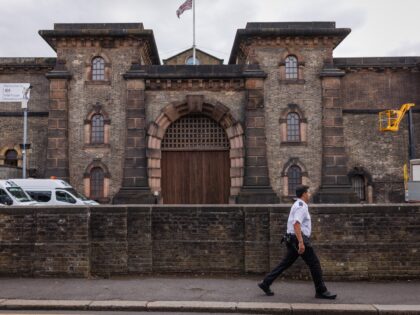
BRITAIN’S SHOCKING Plan: 1,700 Prisoners to be Freed Amid Crisis
— Prime Minister Keir Starmer plans to release around 1,700 prisoners this week to address Britain’s prison overcrowding crisis. This move follows the government’s crackdown on anti-mass migration riots. Prison officials will stagger releases to prevent rival gang conflicts.
The government has reduced the required time behind bars for some offenders from 50% to just 40% of their sentence. Serious offenders like murderers and terrorists are excluded, but domestic abusers will be among those released. A “high proportion” of freed inmates will reportedly be domestic abusers.
Domestic abuse commissioner Nicole Jacobs warned that about a third of victims might not be informed of their attackers’ release, increasing the risk of further attacks. She emphasized the importance of ensuring victims are not overlooked in these changes and maintaining justice and fairness in the process.

ISRAEL WARNS of Iranian Aggression Amid US Cease-Fire Talks
— Israeli Defense Minister Yoav Gallant warned that “Iran’s aggression has reached an all-time high” during a meeting with U.S. Chairman of the Joint Chiefs of Staff Gen. Charles Q. Brown on Monday. Gallant emphasized the need for cooperation to counter threats from Iran-backed Hamas and Hezbollah, highlighting Israel’s strategic position. The meeting also included IDF Chief of Staff Lt. Gen. Herzi Halevi and took place in Tel Aviv.
Despite U.S.-led efforts to broker a cease-fire deal with Hamas, no agreement has been reached as long as Israeli forces remain in Gaza security corridors. Gallant reiterated Israel’s goals: dismantling Hamas, securing the return of hostages taken on Oct. 7, and improving security along the northern border for community safety.
Since Oct. 7, the conflict has resulted in significant casualties, with Gaza’s Health Ministry claiming around 40,000 Palestinian deaths without distinguishing between civilians and terrorists killed by Israeli forces since then have also suffered losses: nearly 700 soldiers and about 1,200 civilians have been killed following Hamas attacks on Israel

COLUMBIA UNIVERSITY President Quits Amid Campus Chaos
— Columbia University President Minouche Shafik resigned Wednesday after a brief, tumultuous tenure. Her resignation follows heavy scrutiny over her handling of protests and campus divisions related to the Israel-Hamas war. The Ivy League school faced intense student demonstrations, leading to police intervention and clashes.
The announcement comes days after three Columbia University Deans resigned for exchanging disparaging texts about Jewish life and antisemitism. Shafik was criticized by Republicans in Congress for not adequately addressing antisemitism concerns on campus. She began her role in July last year but announced her resignation just weeks before the new semester starts on Sept. 3.
In an emailed letter, Shafik mentioned progress in important areas but admitted it was difficult to overcome divergent views within the community. She cited the toll on her family as a reason for stepping down, believing it would help Columbia navigate future challenges better. The university has started restricting campus access to curb potential disruptions as classes resume soon.

UK BRACES for MORE Violence Amid Anti-Immigrant Unrest
— British authorities are preparing for more unrest despite efforts to stop far-right demonstrations. Prime Minister Keir Starmer emphasized the need for continued vigilance after a week of anti-immigrant violence across the country.
Starmer spoke to reporters at a mosque in Solihull, highlighting ongoing emergency meetings with law enforcement. “It’s important that we don’t let up here,” he stated, stressing the importance of planning for the coming days.
Police had anticipated widespread disorder after far-right activists listed over 100 sites to target, including immigration lawyers’ offices. However, these protests did not materialize as police and counter-protesters took to the streets in large numbers.
Carrying signs like “Refugees Welcome” and chanting “Whose streets? Our streets,” counter-protesters protected asylum service centers and immigration attorneys’ offices from potential attacks. The situation remains tense as authorities stay on high alert for future disturbances.

BANGLADESH CHAOS: Prime Minister Flees Amid Violent Protests
— Bangladesh’s Prime Minister Sheikh Hasina resigned and fled the country Monday after weeks of protests turned violent. Thousands of demonstrators stormed her official residence, challenging her 15-year rule.
Her departure has sparked further instability in the nation already grappling with high unemployment and corruption. Dhaka’s main airport suspended operations amid security concerns as Hasina was seen boarding a military helicopter with her sister.
The military chief, Gen. Waker-uz-Zaman, promised to restore order and discussed forming an interim government with opposition leaders. Celebrations erupted in the streets, but some protesters attacked government buildings, setting fires and ransacking properties.

TERRORIST ATTACK Foiled: Southern Israel on High Alert
— Security has been tightened in southern Israel since Hamas-led terrorists killed around 20 people on Oct. 7, sparking the Gaza war. On Monday, a suspect arrived at the entrance of Netiv HaAsara and threatened members of the community’s rapid response team with a knife. The team opened fire, stopping the attack.
Israeli Police are investigating the attempted terror attack near the Gaza border. The Israeli military confirmed one person was killed after trying to stab security forces. Magen David Adom (MDA) paramedics reported that no one was physically injured, though a 61-year-old woman suffered from shock.
The terrorist was identified as a Canadian citizen who accused the IDF of killing civilians in Gaza. The IDF confirmed that he came from within Israel rather than crossing from Gaza. This incident highlights ongoing tensions and security challenges in the region.

LABOUR PARTY’S Economic Plan Under Fire: Will It Really Work?
— Britain’s new Treasury chief, Rachel Reeves, vows to run the economy with “iron discipline.” She hinted at above-inflation pay raises for public sector workers to end ongoing strikes.
The Labour Party, elected two weeks ago, faces pressure to increase salaries and welfare without raising taxes or public borrowing. Reeves criticized the previous Conservative government for high taxes and debt.
Labour won a landslide victory on promises of economic growth, housebuilding, green energy projects, and improved public services. The electorate seeks relief from high living costs and past economic mismanagement.
Inflation has dropped to 2%, but strikes by hospital doctors strain the National Health Service. Other public-sector workers like nurses and teachers have also demanded higher pay through walkouts over the past year.
ISRAELI STRIKES Escalate: Gaza Families Desperate Amid Chaos
— Heavy Israeli bombardment rocked Gaza City on Tuesday, forcing thousands of Palestinians to flee and causing medical facilities to shut down. Israel’s new ground assault aims to combat Hamas militants regrouping in previously cleared areas.
Large parts of Gaza City have been flattened after nine months of fighting, with several hundred thousand Palestinians still in the north. “The fighting has been intense,” said Hakeem Abdel-Bar, who fled to relatives’ homes as Israeli forces advanced.
Families called for ambulances for their wounded or trapped relatives, but first responders couldn’t reach them due to ongoing operations, according to Palestinian Red Crescent spokesperson Nebal Farsakh. “It’s a dangerous zone,” she stated.
Following an evacuation call from Israel on Monday, staff at Al-Ahli and Patients Friends Association Hospital rushed to move patients and shut down. All three Red Crescent medical facilities in Gaza City have closed as well.

LABOUR PARTY Surges Amid UK Election Betting Scandal
— The U.K. general election on July 4 is approaching, with the Labour Party expected to defeat Prime Minister Rishi Sunak’s Conservatives. Polls indicate Labour leader Keir Starmer will likely form the next government.
The Conservative campaign has struggled, facing allegations of election betting involving figures close to Sunak. This scandal has further dampened their already lackluster efforts.
In the U.K., the prime minister decides election dates, unlike fixed schedules in countries like the U.S. This unique system has led to a market for predicting election dates and outcomes.
Police officers and Conservative insiders are under investigation for their involvement in this betting scandal, adding another layer of controversy as over 50 countries prepare for elections in 2024.
BIDEN’S Border Failure: Communities Suffer Amid Migrant Surge
— President Biden’s border policy is under scrutiny as a new wave of migrants arrives at the southern border. Border Patrol agents report an unprecedented surge, straining resources and personnel.
Republican leaders criticize the administration for what they call a “failed approach” to immigration. Texas Governor Greg Abbott stated, “The federal government must take immediate action to secure our borders.”
Homeland Security Secretary Alejandro Mayorkas insists the administration is handling the situation effectively. However, many conservatives argue that current policies encourage illegal crossings.
The debate over border security continues to heat up as communities near the border feel the impact. Calls for stricter enforcement and policy changes grow louder from Republican lawmakers and citizens alike.

ISRAEL-HAMAS WAR: Civilian Casualties Plummet Amid NEW IDF Strategy
— An Associated Press analysis reveals a sharp decline in the proportion of Palestinian women and children killed in the Israel-Hamas war. This trend aligns with Israel’s changing battlefield tactics, contradicting Gaza Health Ministry’s public statements. In October, civilian casualties were above 60%, but by April, they had dropped below 40%.
The U.N. and much of the media overlooked this shift for months, while the Hamas-linked Health Ministry did not correct the record. Israel continues to face international criticism over civilian casualties in Gaza amid an ongoing conflict that shows no signs of ending soon.
Gabriel Epstein from the Washington Institute for Near East Policy noted that this decline is due to changes in Israeli Defense Forces’ (IDF) actions. Despite recent airstrikes killing dozens of civilians, Epstein emphasized that these facts should inform public debate on the issue.
Israel initially responded to Hamas’ October attack with intense aerial bombardment aimed at destroying Hamas positions in Gaza. This strategy paved the way for ground troops supported by tanks and artillery to enter densely populated areas, leading to high initial civilian casualties.

Video
SUNAK’S Fierce Defense: UK PMQs Turn Heated Over Economic Policies
— In a heated session of Prime Minister’s Questions, UK Prime Minister Rishi SUNAK faced off against Labour leader Sir Keir Starmer. Starmer slammed Sunak’s economic policies and public sector reforms, accusing the government of neglecting struggling families while raising taxes.
Sunak stood his ground, pointing to his administration’s efforts to stabilize the economy amid global challenges. He stressed commitments to economic growth, public sector efficiency, and securing international trade agreements. This clash is part of Labour’s push to position themselves as a viable alternative government.
The debate touched on crucial policy areas like energy independence and healthcare funding, drawing attention from political analysts and the public on social media. International observers are watching closely for its impact on UK diplomacy post-Brexit.
PMQs play a vital role in holding the government accountable as it tackles domestic and foreign challenges, shaping future policy directions and political strategies.
